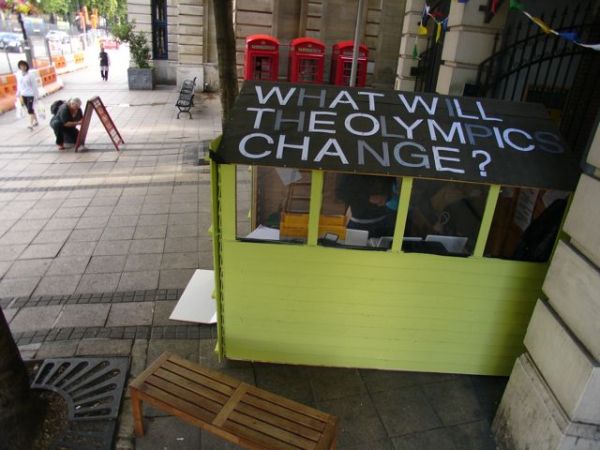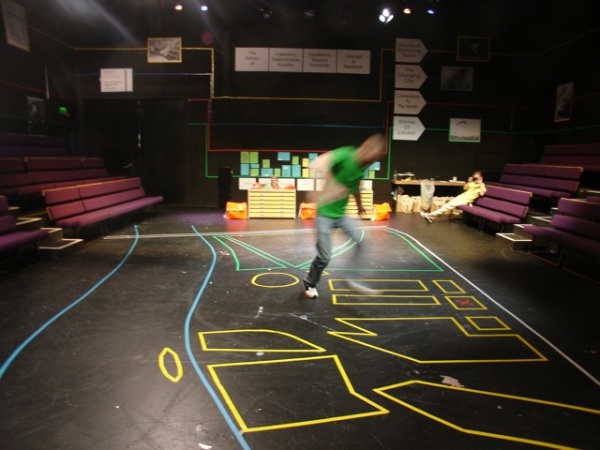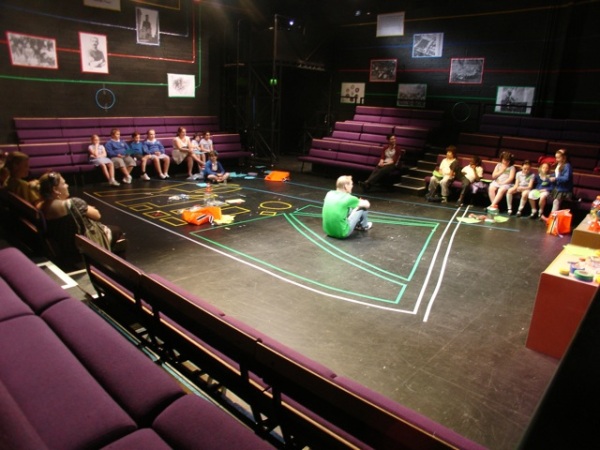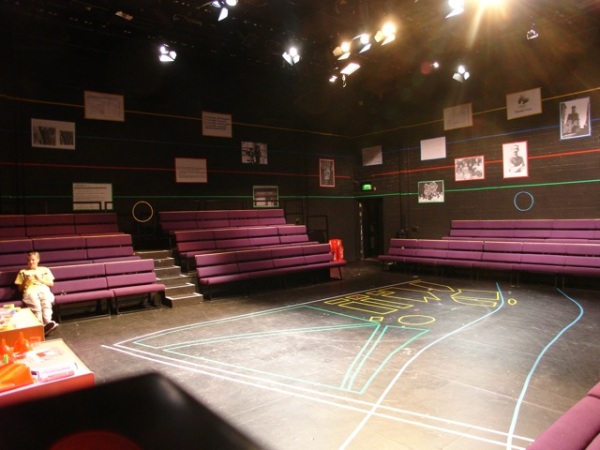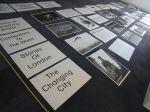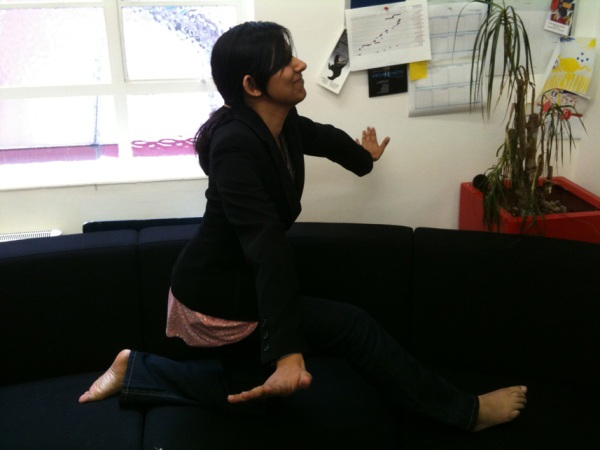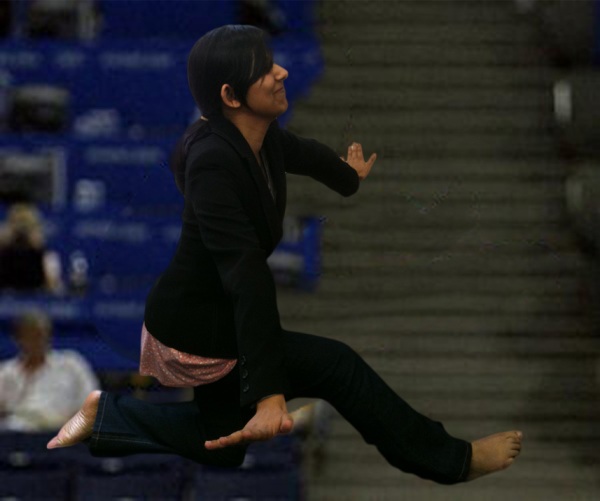Signing Off
Biglop is over now, so I’m going to move my blogging efforts over to a new blog about a different programme at A New Direction called Headstart. HERE’S THE BLOG
Proof rioters were all privelaged brats. We can all go home now.
So Chelsea Ives is an Olympic ambassador. So what?
I find something slightly distasteful about the ‘outing’ of the rioters. Most of it seems to be motivated by a desire to paint the rioters as privileged, ungrateful deviants – why? Because this makes it much easier for them to be morally condemned for their actions. It makes it easier for people who aren’t upper or middle class to make this not-about-them. And it makes it easier for middle class people to get past the idea that they know nothing about life in the city for young people and judge the rioters as their own. It means other generations owe young people nothing. It means the riots had nothing to do with schools, town-planning or the hugely divided city in which we live. Wiley gets it. It’s like everyone is rolling the football a few feet in front of them so they can good kick at it. The riots came from somewhere. They didn’t happen in the Cotswolds. Read Stanley Cohen people.
Nicking trainers from JD, is a crime committed in the pursuit of an imaginary status that nobody with real power really believes in. I don’t know what that means, but I know that it’s more than just people should be punished for doing bad things.
What will the Olympics change?
First things first: Oscar Pistorius has qualified for the World Athletic Championships and is now the second fastest 400m runner in South Africa, which means he will probably be competing in London.
—
We had quite an Olympicy weekend. On Saturday we went to a forum at Rich Mix about the Cultural Olympiad. I tried to ask what the Cultural Olympiad was about referencing the Olympics original intention as a peace mission and its reincarnation as a youth education project (I think this is the key problem with the cultural Olympiad, not that people haven’t heard of it) but didn’t get a very clear answer. It made me wonder what all the people who did know what it was, actually said! It seems to be a load of entertaining cultural stuff that’s happening in Summer 2012 – some of it is free and some of it you have to pay for. The good things about the cultural Olympiad are that some things that wouldn’t have happened, will happen. E.g. Radio 1’s Big Weekend in Hackney. The less good things are – it doesn’t really make sense as a concept because it’s a load of things that have just been re-branded Olympic for 2012. And it’s also a bit disappointing that there doesn’t seem to be a strategy or an approach to keying all these events into creating opportunities for young people to get involved and have new practical experiences. The organisers tend to blur the idea of ‘participating’ in the cultural Olympiad with just ‘going to an event’ – which to me seems a bit slippy.
—
On Saturday we went to Stratford with the SMJs to find out what the Olympics will change. See photo at the top. This chimed with some questions I was asked for a South American news service thing. I’ve pasted in the two questions and my answers below.
Do you think Olympic Games bring economic benefits to those who host them?
It’s not like they did a cost-benefit analysis – it was just like ‘why on earth not?‘.
But just because there are economic benefits, doesn’t mean that they always go to the right people. The London Olympics is supposed to be helping East London (the poorer side of the city) to get on a level with the rest of the city. It is also supposed to be benefiting young people. But the reality of the games is that meeting the deadline rules – tearing places up and building new ones against an immoveable deadline is not a sensitive process. It becomes much harder to do things ‘with people’ and much easier to do things ‘to them’ – especially when you are supported by an act of parliament. The Olympics will accelerate a process that is already in place – the migration of middle class people, like me, eastwards. But whether it will really improve the lot of people growing up in East London today – who knows? The fact that so few people who live around the Olympic Park have been able to actually get tickets for the games exacerbates this perception. It may just be that we are impatient and that we need to wait a long time to see the difference the Olympics will make to people living around the Olympic site, but I think as a process the Games gives benefits to people who already have power. They don’t give power to the weak.
How can it not? Whatever you think about the corporatisation of the Olympics, the huge construction projects, the political grandstanding – at the heart of it are amazing people doing amazing things. When else does the whole world look at the same place for two weeks? I think you’d have to be particularly cold-hearted not to enjoy it. Providing there isn’t a horrific terrorist atrocity I think you’ll see people all over the country finding their own way to enjoy this thing. I know alot of people here claim that they aren’t excited about it, but alot of people said the same about the Royal Wedding this year and most people ended up having a pretty good time. The fact that people are incensed that they haven’t been able to buy tickets for sports that they would never normally watch suggest that there will be a big appetite for fun here, even if it won’t be quite as big as yours in 2016!! Today (monday) England are playing a Test cricket match against India at Lords – there were people started queuing to get into the ground at 2am this morning and there are as many people supporting India as there are people supporting England. It’s a brilliant thing – and the kind of thing that many of us like about this country and this city Hopefully the Olympics will be like that too.
With the benefit of hindsight
Last Thursday someone at The School of Research someone asked me to explain what my essay was about and I sort of didn’t say anything. I probably should have said something like this:
The Olympics are a cultural event. By cultural event I mean that people who go to the Olympics are experiencing something more than people competing against each other at sport. Why else would people pay stupid amounts of money to watch sporting events they’ve never heard of and probably never watched before? Why do opinion polls across London support the Olympics despite the crazy costs, the lies and a supposedly shoddy logo? Why are artists so keen to comment on it? If it isn’t a cultural event, why is the opening ceremony the most watched event of the Games? Why were the games originally imagined as a festival of sport, education & culture and prior to that as a vehicle for peace? Why is the Olympic story written through with struggles of minorities for acceptance and an equal footing in society?
Through the Olympics, by hook or by crook we learn about ourselves and other people. The Olympics becomes part of our culture, it comes with its own culture and in many ways it’s made by and with culture.
I think this is the most significant about the Olympics. All the bad things, that Iain Sinclair so eloquently critiques – the state sponsored massacres, the empty promises, the corporate sponsorship, the vanity architecture, the boycotts, bombings and the rest are only possibly because the Olympics has a deep connection to people and are a cornerstone of our shared global culture.
It is this understanding of the Olympics as a ‘cultural event’ which gives it the potential to be useful for education work with young people and schools. Which I think, after last week, is basically three things.
1) Using the Olympics happening in your city as a way to explore yourself, the city you live in and your relationship to the world. This is basically the Biglop programme..
2) Finding people who are trying to be in the Olympics and meeting them in different ways.
3) Using the fact that the Olympics are happening in your city to make something. By commenting on something, documenting something, organising something. A bit like with the Headstart programme.
Lots of people would probably say that the Olympics isn’t a cultural event with a connection to people – they’d say it’s the vicious and cruel projection over people. It’s delivered by a corporate entity, protected by an act of parliament, that controls who accesses the games and who benefits from them and who can use them. How can the people have a connection to the Olympics if they can’t even use the world Olympic? Using the Olympics for education and peace isn’t possible when the value of the games is protected and sold to the highest bidder etc etc
But so what. The Olympics for the time being is-what-it-is. Even if those things are true we can’t change them now. And if we want to change them, the only way to do that is to offer an alternative. We’ve only got a year to go, and I think at A New Direction we still have a chance to find an approach to learning and the Olympics that could be used in future Olympic cities.
school of research merchandise
here’s a random sample. I did 62 – no two are the same. s/m/l/xl. they go with an essay, that goes with a series of pictures.
Two Sides of the Games
A pair of stories here about the two sides of the Olympics.
One about Oscar Pistorius who is on the verge of becoming the first athlete with prosthetic limbs to compete against able-bodied athletes in the Olympics. The other about how the the word ‘2012’ is owned by the Organising Committee of London’s Olympics.
Iain Sinclair & The Culture Detectives
Cult London author Iain Sinclair is on Start the Week today, pouring scorn on the Olympics and their effects on East London. In 2008 he was allegedly banned by Hackney Council from airing these views in one of their libraries. I was riding to work when it was on, so I’ll have to catch it later, but I googled around for the poem that I think he has written about the Olympics (the pretext for him being on the programme I think) but what I found, although beautiful, was too explicit to post for young eyes. This slideshow gives you a clean three minute precis of where he’s coming from. Sinclair’s work is a critique of the connection between the Olympics regeneration programme and the culture of East London. This is essentially the same connection that Nimblefish have been exploring (albeit less polemically) in their cultural detectives work.
The Cultural Olympiad is a key element of the London 2012 Olympics. But how can young people make sense of ‘culture’ in their own lives? As Culture Detectives, pupils will use a variety of creative tools to find ‘clues’ that link their culture to that of the world of the Olympics.
This programme is an enquiry into culture: how it is defined, why it is important, and how it connects one set of individuals to others, both in the UK and around the world. We will invite the teachers and students to ‘co-author’ these definitions, and the results will inform and shape our ‘sleuthing’ activities.
Although Sinclair clearly hates the Olympics, I can’t see him disapproving of this. In fact, why would anyone? It’s amazing.
I’M INVINCIBLE AND THOUGHFUL / I’M INVINCIBLE AND THOUGHTFUL / I SUCCEED… The Biglop Anthem?
This is amazing. It’s a chant made up by kids from Wembley Primary School riffing on the Olympic values (Inspiration, Determination, Courage, Equality, Friendship, Respect and Excellence) as a part of their project with LIFT and sound artist Dan Scott. More about the project here. I like it because it’s chanting and I love chanting. But I also like it because the Olympic values are well, I dunno a bit self-contradictory, and a bit like meh, but somehow hear they’ve managed to make them sound, well like a protest, a celebration and a dream all at the same time! just listen to the bit in the middle where the girl goes ‘I am courage, I AM courage, I AM COURAGE – WE-KEEP -HELPING-TILL-SIX-AM! I’m inspired. I have finally seen the light. Will somebody please put these children in the opening ceremony NOW.
iconic moments/poses III
Still no time to discuss the route of the torch relay, I’ve got people to judge. This is another entry from a new direction who continue to ignore my request for iconic Olympic moments to indulge their twin obsessions with water and photoshop. How can this be iconic? There aren’t even people in the seats behind her. Hmmm… I suppose you could say that this was an iconic pose… hmm I think I see now – aghh. I misunderstood my own exercise. Fair game, I understand now. But would still contend whether this was an iconic pose – I mean she looks like she’s, err, well use your imagination..
Now stop. And look at this.
For all my misgivings about the choice of photo, I commend the expert positioning of the arms here and the even a cursory effort has been made at the toes. But there’s no hiding from the fact that the legs aren’t really all there – which is clearer in the photoshop rendering below.
This mid air high-hurdling look does look cool though. 4.5/6
